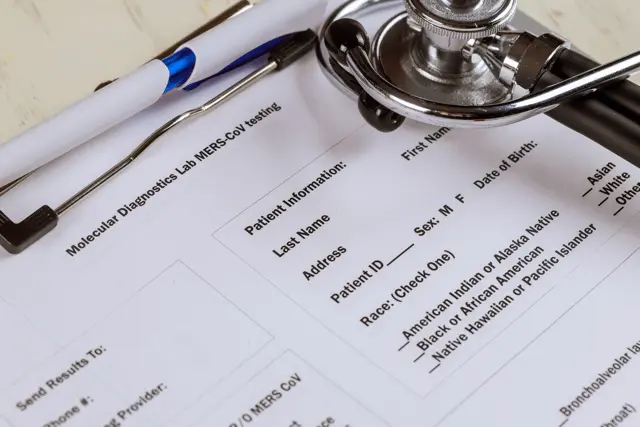Table of Contents
The critical role of health information management (HIM) in patient care cannot be overstated. Accurate and timely health information is essential for clinicians to make informed decisions, for patients to understand their health status and for the healthcare system to function efficiently. This article will explore the importance of accurate health information in patient outcomes and how health information management is a key component in delivering quality care.
The Importance of Accurate Health Information in Patient Outcomes
Accurate health information is the cornerstone of effective patient care. It enables healthcare providers to make informed decisions, track patient progress, and identify potential health risks. Inaccurate or incomplete information can lead to misdiagnoses, ineffective treatment plans, and even harm to the patient. For instance, if a patient’s allergy information is not accurately recorded, they could be prescribed medication that results in a severe allergic reaction. Therefore, it is essential that health information is not only accurate but also readily accessible to healthcare providers when they need it.
Moreover, accurate health information is vital for patients to understand their health status and make informed decisions about their care. When patients have access to their own health records, they are better equipped to ask questions, seek second opinions, and adhere to treatment plans. This level of engagement can lead to better health outcomes and a more positive healthcare experience.
Finally, accurate health information is critical for the healthcare system as a whole. It enables healthcare organizations to analyze data, identify trends, and improve overall quality of care. Data-driven decision-making can lead to more efficient use of resources, reduced healthcare costs, and improved patient outcomes. In short, accurate health information is the foundation upon which successful patient care is built.
Health Information Management: A Key Component in Quality Care Delivery
Health Information Management (HIM) professionals play a critical role in ensuring that patient information is accurate, secure and accessible. They are responsible for managing health records, coding and classification of diagnoses and procedures, and ensuring compliance with regulations. Without their expertise, healthcare providers would not have access to the information they need to deliver quality care.
HIM professionals also play a crucial role in safeguarding patient privacy. They are responsible for implementing and monitoring security measures to protect health information from unauthorized access. In an age where cyber threats are increasingly common, the role of HIM professionals in maintaining the confidentiality of patient information is more important than ever.
Furthermore, HIM professionals are key players in the implementation of health information technology (HIT) systems, such as electronic health records (EHRs). They work with clinicians, IT professionals, and vendors to ensure that HIT systems are designed to meet the needs of healthcare providers and patients. They also provide training and support to ensure that healthcare providers can effectively use these systems to deliver quality care. In this way, HIM professionals are essential in the integration of technology into healthcare delivery.
In conclusion, the critical role of health information management in patient care cannot be overstated. Accurate and accessible health information is essential for healthcare providers to make informed decisions, for patients to be engaged in their care, and for the healthcare system to function efficiently. HIM professionals are key players in ensuring that health information is managed effectively, and their expertise is essential in delivering quality care. As healthcare continues to evolve, the role of HIM professionals will only become more important in achieving positive patient outcomes.
FAQ
Why does the article emphasize the critical role of Health Information Management (HIM) in patient care, and what motivated the exploration of this topic?
The article recognizes HIM as a cornerstone of effective patient care, and it explores this topic to shed light on how organized health information is integral for delivering high-quality, coordinated, and patient-centered care.
How does the article delineate the specific contributions of Health Information Management to patient care, and what key aspects of healthcare delivery are highlighted as impacted by HIM practices?
The article details how HIM ensures accurate and accessible patient records, facilitates efficient communication among healthcare providers, and supports clinical decision-making. It may highlight aspects such as care coordination, patient safety, and quality improvement as key areas influenced by HIM.
Can you provide examples or case studies illustrating instances where effective Health Information Management positively influenced patient care outcomes, and how these experiences have shaped HIM practices in healthcare organizations?
Certainly! Examples may include cases where streamlined electronic health records improved care coordination or instances where data analytics led to better-informed clinical decisions. The article showcases these examples to illustrate the tangible impact of HIM on patient care.
In what ways does the article discuss the challenges associated with Health Information Management in the context of patient care, and what strategies or technologies are highlighted to overcome these challenges for optimal healthcare delivery?
Article addresses challenges such as data security concerns,interoperability issues, and the potential for information overload. It may discuss strategies like implementing robust cybersecurity measures, promoting data standardization, and leveraging interoperable health IT solutions.
For healthcare professionals and organizations aiming to optimize Health Information Management practices for enhanced patient care, what actionable insights and best practices does the article offer based on industry standards and successful implementations?
The article provides actionable insights, such as promoting aculture of data accuracy, investing in HIM training for staff, and embracing interoperable technologies. Best practices may include establishing clear data governance policies, fostering collaboration between HIM and clinical teams, and staying updated on industry standards.


